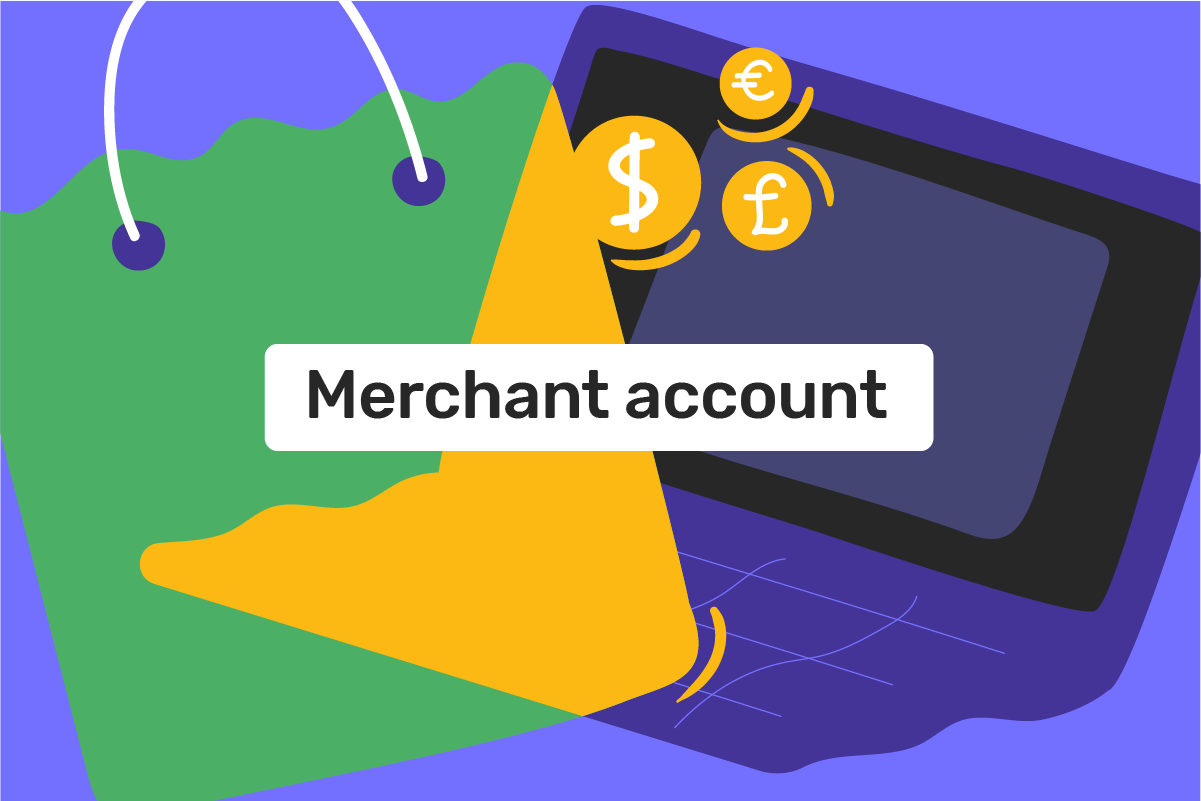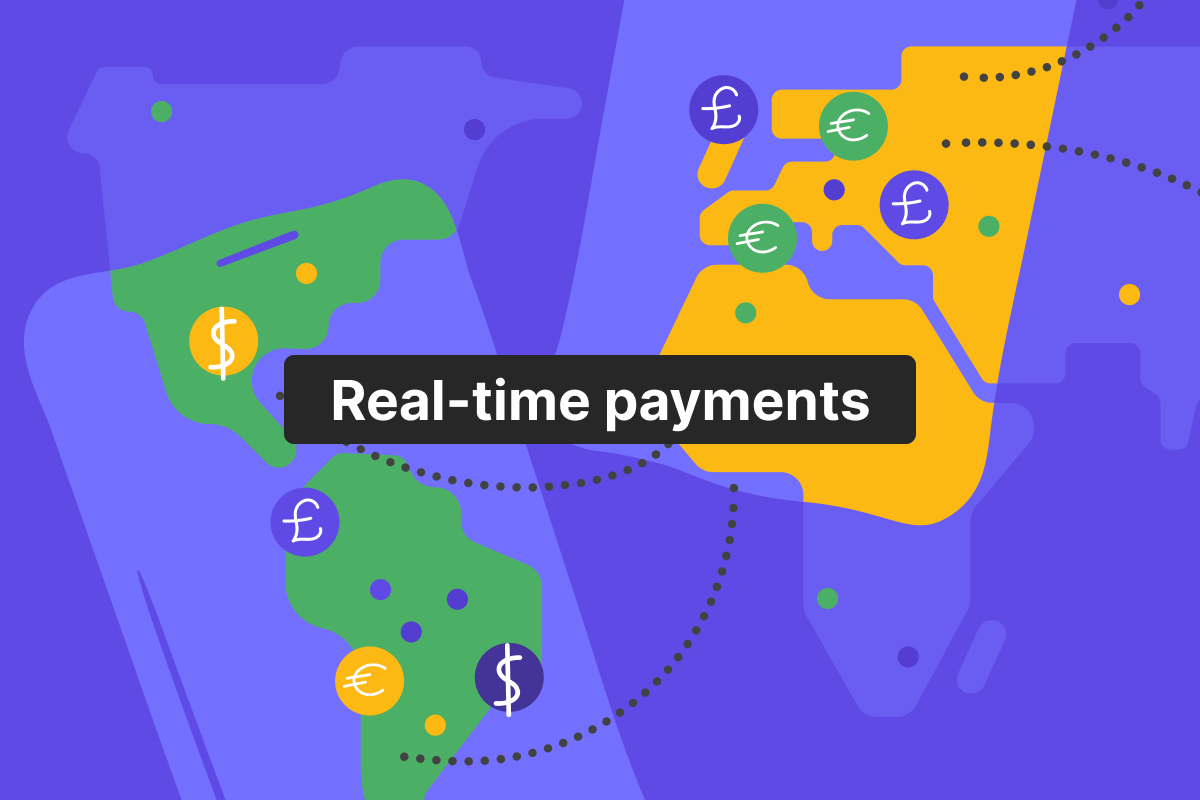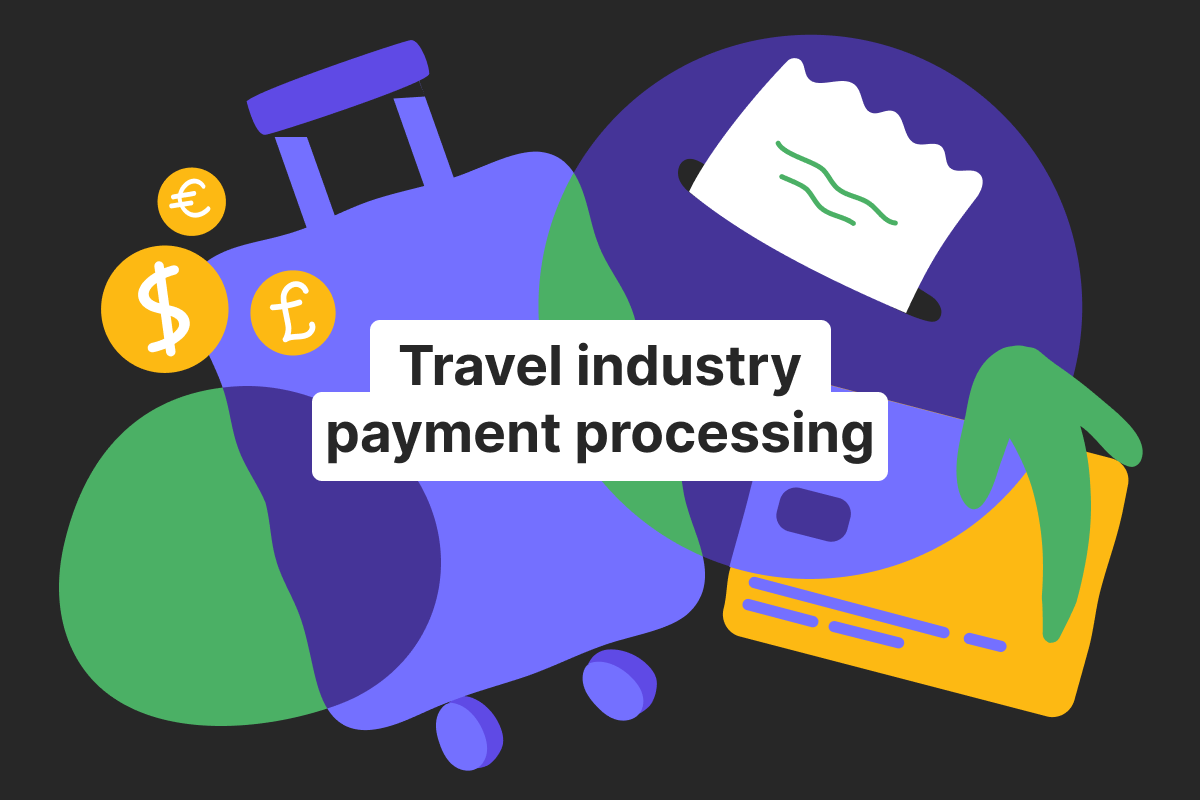*Merchant features will be available in exclusive beta from September 15, 2025.
In the modern world, opening your own business is a growing tendency, no matter where you’re living. And, in many cases, it is an online business, meaning that merchants don’t accept cash payments.
Today, we will talk about the practical side of running an online business – accepting payments for goods and services you’re selling. To do so, you need a merchant account. But what is a merchant account? Read on to find out all about a merchant account and its services, its purpose, and how to use it to accept electronic payments and process payments / in-person payments.
Merchant account meaning
A merchant account is a special type of business bank account that allows companies to securely accept payments – via credit and debit cards, e-wallets, and other means. It is essentially a payment gateway between your customers’ bank and your business, ensuring transactions are authorized and funds are settled smoothly. Having a merchant account is essential for e-commerce stores, subscription services, and any business looking to accept digital payments worldwide into their bank account. If you run multiple businesses, you need a separate merchant account for each of them.
Open an account
in Genome online
How does a merchant account work
A traditional merchant account is a type of business bank account designed specifically for collecting and holding payments from your clients. In fact, you cannot do anything else with a merchant account – it only works as a safe place for the money you’re receiving through sales. From it, the funds are moved to a business account, where you can spend them as you wish (use a credit or debit card, make and receive transfers, etc.). No merchant service provider offers such features and functionality.
You can choose how often electronic payments will be sent from your merchant account to a business account. You can do this manually or create a monthly automatic transaction, for instance. Let’s have a closer look at how money ends up in a merchant account step by step. All in all, 5 parties take part in this process:
Customer | Purchases an item using a bank card (online, via Google/Apple Pay, in a physical store, etc.) |
Merchant | The customer’s card details are processed by the card reader and sent to the merchant payment service. |
Acquiring bank | The acquiring bank is a merchant’s (seller’s) bank that receives information from a merchant account and sends it further. |
Card association | Examples are Visa and Mastercard. After notification from the acquiring bank, the card association passes the same message to the final party. |
Issuing bank | It’s a client’s bank that has issued the card used during a transaction. It checks whether there’s enough money on the account linked to the aforementioned card to make the withdrawal. |
After all these steps, the process is reversed:
Issuing bank | Transmits a message whether a customer has enough funds in their account to cover the amount of the transaction. |
Card association | Passes the same message further. |
Acquiring bank | Notifies the merchant of the successful payment. |
Merchant | The money will arrive in the merchant’s account within a settlement period (usually 3 business days, but can even take a week). The thing is that the communication between all the parties is pretty fast, but moving funds between accounts takes longer. |
Customer | Receives notification that they were charged. |
Types of a merchant account
As there are different types of companies, there are various merchant payment processing services and merchant accounts to fit the needs of all business owners. Here are the types of accounts merchant account providers offer.
Aggregated (pooled)
Merchants are grouped into so-called pools based on the industry they’re working in. After registering a business with the help of such a service, you receive a special code. Then, you will be grouped with similar companies based on the type of goods you’re selling.
Aggregated merchant accounts work wonders for small businesses that don’t have a large income or don’t accept many electronic payments. As all transactions are processed in a batch at the same time, the costs of processing are cheaper. As a result, the fees for using aggregated merchant services also decrease. The downside of such an account is a lack of control over when the funds will settle in – you need to wait to be paid, along with all the other merchants in the same pool.
Dedicated
A dedicated merchant account fully belongs to one business only. You can negotiate all the conditions and fees with an acquiring bank to make the most of their services. Of course, the range of features and pricing depends on the provider. For instance, for some small businesses, a dedicated merchant account might be better to go for a dedicated merchant payment service rather than joining an aggregated account.
Online
If you are involved in e-commerce, you can partner with merchant account providers who offer internet merchant accounts. It works just the same as a regular merchant service but is tailored specifically for online transactions. For example, some banks offer such tools as shopping carts. However, the fees for such accounts can be a little bit higher because online payments are considered to be riskier.
High-risk
Companies that operate in industries such as gambling, travel, subscription services, etc. can get high-risk merchant accounts. The risk of chargebacks with such businesses is significantly higher, which, in its turn, can cost more money for providers. Thus, merchant account providers do not always approve high-risk organizations for opening merchant accounts with them. So, what do you do?
No worries, plenty of companies are willing to help you with creating high-risk merchant accounts. These are the three factors that have a tremendous impact on whether you will be able to set up a merchant payment service even if your business is considered to be a high-risk one:
Industry sector
As we’ve already mentioned before, industries associated with a higher level of cancellations and chargebacks are called high-risk ones. If your business is connected with gambling, it does not necessarily mean that you won’t be able to open a merchant account. However, be prepared that you might need to present additional documents and information to be approved.
Directors and ownership
Directors’ credit history and financial records can be checked here. For example, if one of the owners went bankrupt in the past, it can become an obstacle to using a merchant service.
Experience
It also matters how long your company has been on the market. If your business is more or less stable, with no extreme financial losses, there are more chances to be approved for the merchant account. For this, you might need to show a record of the company’s financial history.
Benefits of a merchant account
Accept card payments. Open a bank account for merchants to process credit cards, accept debit card payments, and online payments worldwide, supporting multiple currencies and expanding into new markets.
Faster settlements. Partner with merchant account providers to receive funds quickly, improving cash flow and enabling reinvestment without long delays.
Chargeback management. Access tools to handle disputes efficiently, reduce risks, and protect business revenue using the merchant and business bank account tools.
Secure payment transactions. Benefit from fraud prevention systems and encryption that safeguard sensitive customer and business data when you accept credit cards, debit cards, etc.
Open an account
in Genome online
Merchant account fees
The charges of opening and managing a traditional merchant account can be subdivided into a few categories:
Monthly fees. Most merchant account providers charge you every month. These are the costs for the maintenance of your merchant service. If the volume of your debit/credit card transactions doesn’t reach a certain threshold (according to the contract), you may need to pay a monthly minimum fee.
Setup. It’s a one-off setup fee for creating a merchant account. Keep in mind that most merchant payment services only offer long-term contracts (from half a year or more). Thus, you can be charged additionally in case of an early termination fee of the agreement.
Card processing. The rule of thumb here is the following: the more customer transactions go through your merchant account, the smaller the processing fees for each transaction fee. Let’s break up all the charges for each card payment, including possible chargeback fee costs if disputes arise.
Interchange fees | The amount charged by the issuing bank of a customer’s card for each transaction made with this card. |
Payment processing fees | This fee is charged by a payment processing company (PPC). Among these are monthly fees, per-transaction fees, and even charges for using hardware and equipment needed to process transactions (such as POS). |
Assessment fees | These are charged by the card association. For instance, Visa takes a small amount for each transaction made with a Visa card. |
Fees for processing credit and debit card payments are different, so don’t be surprised by the different costs of these transactions. Also, check the monthly or annual fee for possible discount conditions. What’s more, if you need a payment gateway and you will use this tool offered by your merchant account services company, there will also be an additional amount to cover each month.
How to apply for a merchant account
Before using a merchant service to accept electronic payments, you must understand the nature and particularities of your business/company. For a start, try to look into the future and predict the possible volume of transactions, the features you need, the types of payments you will accept, and so on. Merchant account contracts offered by payment service providers are mostly long-term ones, so it’s best to choose one provider for an extended period rather than hopping from company to company.
Additionally, think about any hardware you might need, such as mobile card readers or POS terminals. If you don’t need them at the moment, they may be handy for your business in a year or two. That’s why you should seek a provider that can rent you these gadgets anytime.
PCI compliance is another requirement for any company collecting card payments. It’s a legal obligation to gather, process, and properly handle sensitive data (bank card details, customers’ personal information, etc.). Merchant payment services providers usually have PCI compliance services in their packages.
You can apply for a merchant account online. To submit the form, you will need:
Business bank account and its details;
Business ID and license (if required);
Financial statements – to prove that you have enough funds to run a company and cover all the costs;
Additional supporting documents (business plan, marketing materials, etc.) – these are typically expected from newly created companies.
Do I need to set up a merchant account for small businesses?
The answer is simple: if you want to collect card transactions from your clients, yes, you will need a merchant service even for a small company. The only exception is if you take payments by cash only. Truth be told, during the past few years, more and more people have been going for cashless transactions. Unsurprisingly, all the businesses want to keep as many clients as possible and are forced to accept card payments both online and in physical stores.
No matter whether you’re only starting to sell your services as a freelancer or own a little shop, setting up a merchant account is a wise decision that will benefit you in the long term.
How Genome can help
With Genome, you can open a business wallet and get a business checking account that provides a plethora of services. We enable batch transfers, allowing you to send multiple payouts or settlements at once – ideal for iGaming, e-commerce, and subscription-based businesses.
Through Genome’s API integration, companies can benefit from real-time notifications for payments from clients and seamlessly connect financial data with accounting or CRM systems.
Additionally, Genome supports SEPA Instant Transfers, meaning you can move funds across the SEPA Zone within seconds, improving cash flow and customer satisfaction.
Combined with multi-currency accounts, virtual and physical Visa cards, and robust fraud prevention tools, Genome’s business checking account gives you everything needed to operate efficiently and scale internationally.
Moreover, we are launching merchant features soon as well! Our merchant features will be available in exclusive beta from September 15, 2025. Don’t miss your chance – start a business account now! The onboarding is completely online with minimal documents required!
Open an account
in Genome online
FAQ
What is meant by a merchant account?
It’s a special account offered by merchant account providers that helps you receive payments from your customers. Here we’re talking about card transactions (online ones, in stores, via Apple/Google Pay). With a merchant account, you can gather information from payees’ cards, process the payments, and receive money. Further, you will need to move these funds to the business account of your company.
Why do I need a merchant account?
The main purpose of this tool is to accept card transactions from your clients. Without a merchant payment service, you won’t be able to receive this money and move it to the business account. Additionally, merchant account services providers offer such hardware as mobile card readers and POS terminals for rent.
How do you get a merchant account?
The application process is easy – you only need to fill in the information online. However, the list of requirements for setting up a merchant service can be quite long, especially when it comes to businesses involved in high-risk industries. The advice here is to look for a suitable provider with low fees and the full package of features you need. If your company is new, you can go for an aggregated account, for instance. This will save you some money till your business grows and you’re ready to shift to the dedicated merchant payment service.






